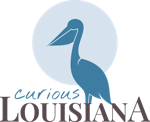New Orleans resident Chuck Blamphin, 75, recently learned about Acadiana faith healers, or traiteurs, while searching for treatments for a friend with migraine headaches.
As tends to happen online, one thing led to another, and he soon found himself reading about traiteurs.

"I'm not surprised that we have something like this in the Louisiana culture," Blamphin said. "I'm not surprised at all."
Becca Begnaud, one of the few Acadiana healers who has an online presence, first came across the concept of faith healing in 1989 while undergoing treatment for breast cancer.
"One of the nuns in pastoral care said I should look into healing work," Begnaud said. "I thought she was out of her mind."
Now, at 70, the Scott woman is a believer and a faith healer.

Becca Begnaud is a practicing traiteur who lives in Scott.
"Healing works — mentally, spiritually, emotionally and physically," Begnaud said. "The physical healing is only 25%."
Traditional traiteurs (male healers) and traiteuses (female healers) treat people with specific prayers that are passed down from one healer to the next. Prayers are often combined with other folk treatments, such as the use of healing touch and medicinal plants.
Begnaud, who previously trained in reiki and healing touch, said traiteurs have been known for curing warts, headaches, sunstrokes, sprained ankles, thrush, shingles and other ailments.

Gardeners Melanie Francois, from left to right, Mary Perrin, Beverly Fusilier, and Nancy Atkins work in the Lafayette Parish Master Gardner Medicinal Demonstration Garden at Vermilionville on Monday, July 11, 2022 in Lafayette, La.
The transmission of the prayers, said to be a sacred gift, traditionally happens orally in French. Healers are typically not paid or even thanked for their work since the belief is that God is the one who actually heals — traiteurs are just facilitating the treatment.
Mary Perrin, a Lafayette traiteuse, treats about two people per month.
"A long time ago, people would have a line waiting outside their door," Perrin said. "It's changed quite a bit in the last 75 years."
Perrin, 75, uses medicinal plants in her work and also maintains a healer's garden at Lafayette's living folklife museum, Vermilionville. Perrin personally knows of 10 faith healers in Acadiana but estimates there may be as many as 100. She knows of none who are younger than 60.

Gardeners Beverly Fusilier, from left to right, Mary Ann Armbruster and Mary Perrin work in the Lafayette Parish Master Gardner Medicinal Demonstration Garden at Vermilionville on Monday, July 11, 2022 in Lafayette, La.
"Everybody wants to know if I think it's got a future," she said. "And it's kind of like the Cajun French language. Is that going to live on? No, it's not. It's only old people who speak it, and when they die, it's going to be gone."
Perrin said she's passed on her healing prayers to someone a few years younger in an effort to keep the tradition alive. Begnaud, too, has passed on her prayers and agrees that it's a mystery just how many traiteurs continue to practice.
"There's no registry for these people," said Ray Brassieur, a retired Lafayette anthropologist. "There's no way to know. None at all."
That's partially by design.

Gardener Mary Perrin work in the Lafayette Parish Master Gardner Medicinal Demonstration Garden at Vermilionville on Monday, July 11, 2022 in Lafayette, La.
A century or two ago, people knew their neighbors and who offered what services in a community. With the rise of Western medicine practices and antibiotics, home remedies were seen as suspicious and even dangerous. That, combined with the stigmatization of the Louisiana French language during the early 20th century, resulted in the discouragement of traitement practices.
Nearly all groups of people in Louisiana have historically practiced some form of folk healing.
"There was a great deal of sharing," Brassieur said. "There's Native Americans from different tribes, Cajuns, Creoles, Black people, White people, Italians — they all have some elements that are exactly the same. But as it went on, other forces made it more risky to share. If it got out that you're doing this kind of thing, maybe the local physician would look down on you, maybe talk bad about you. Or maybe people would say, 'Oh, this is a witch.'"
Brassieur, 68, said he believes there could be a resurgence in traitement because of growing interest in natural remedies and preserving Louisiana French traditions.
"Most people will say it's a dying thing," Brassieur said. "But I really have no evidence of that. I know it's changing — the context of it is changing. That it's going away? I'm really not sure of that."
Curious Louisiana connects readers with our newsroom's reporting. If you've about something Louisiana-centric, ask us. You can reach the Curious Louisiana team at CuriousLouisiana@theadvocate.com.




